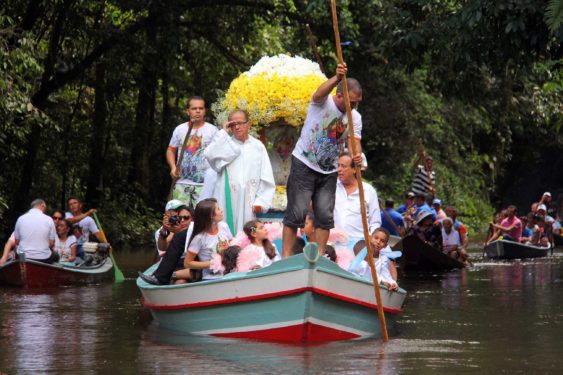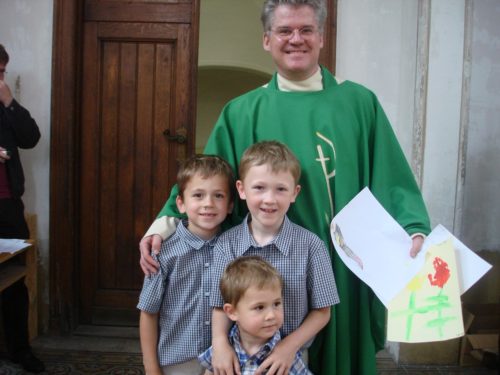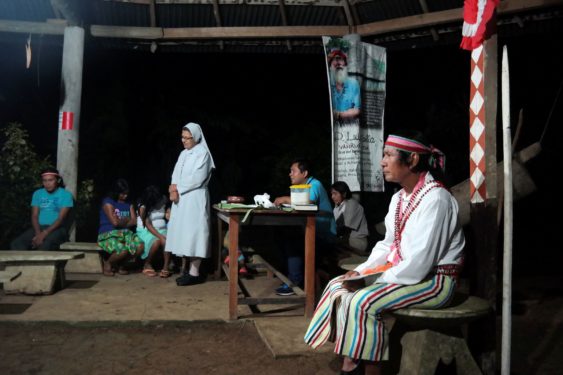
Brooklyn Diocese has mixed reaction on Amazon synod document
SOUTH SLOPE — Clergy and church officials from the Diocese of Brooklyn differ widely on their views about married priests, a topic that was speculated on leading up to Pope Francis’ Feb. 12 document on the Synod of Bishops from the Pan-Amazon region.
While the pope’s apostolic exhortation did not directly address the issue of ordaining married men to the priesthood, neither did it indicate that Pope Francis would change Church law regarding this topic.
Father Anthony Andreassi, c.o., superior of the Brooklyn Oratory of St. Philip Neri, said that if the pope had approved of ordaining married men in the Amazon region, it would have been on an extremely limited, “experimental basis,” only in remote parts of the world that are in dire need of priests to administer the sacraments.
“I think people of free will are allowed to discuss these issues,” Father Andreassi said. “Obviously celibacy is a gift to the church, and I don’t think, in any sense, Pope Francis was calling that into question. For priests like himself, as a Jesuit, it’s constitutive to their vocation and no one is challenging that.”
During their three-week synod meeting in Rome in October, bishops from the Amazon region of Latin America brought up the possibility of ordaining married men as priests because of the shortage of priests in the area. Some villages are visited by priests only once or twice a year.
In his document “Beloved Amazon,” Pope Francis focused more on the ecological concerns and the indigenous people of the Amazon. While the possibility of married priests was one of the proposals of the final document of the synod, the pope decided to preserve the church’s rules on celibate priests — a move cheered by some.

“I think that the basic church discipline remains in effect, namely that clerical celibacy is the norm for the Latin church,” said Father John Cush, a priest of the Diocese of Brooklyn who serves as the academic dean and formation advisor at the Pontifical North American College in Rome.
“A married priesthood in the Latin church will remain the exception, as it is currently, as in the case of convert clergymen from other ecclesial communions like Anglicans,” Father Cush added.
The document concerns only the Amazon region, and does not and should not affect daily life in the United States, Father Cush said, adding that celibacy among clergy “affirms the beauty and dignity of the chaste, celibate state of the priesthood.”
“The Holy Father puts forward a continuity, rather than a discontinuity in the teachings of the church concerning clerical celibacy and the role of women, among other issues,” Father Cush said.
Father Terrence Curry, S.J., a missionary priest who now serves in the Diocese of Brooklyn, noted that the church has had married clergy in the past.
“A married clergy is not foreign to the Catholic Church,” Father Curry said, emphasizing that the issue would affect only diocesan priests who more regularly administer the sacraments, not priests from monastic or religious orders.
Part of being a priest, he said, is “voluntarily choosing in the diocesan world to be celibate.” If men don’t feel called to that life, he insisted, they shouldn’t become priests.
But Father Curry said he believes that married priests would be a “great step forward, in the sense that being a priest would be more normal” in some cultures.

Also in “Beloved Amazon,” Pope Francis didn’t approve women as deacons — another issue the synod had raised. Still, the pope said that women have kept the church alive for centuries and should continue to “assume important responsibilities.”
Bishop Nicholas DiMarzio said that even without women priests, laywomen and religious should know that the church recognizes their contributions.
The bishop pointed out that Pope Francis’ exhortation was released on the 15th anniversary of the assassination of Sister Dorothy Stang, S.N.D., an American missionary in Brazil who defended the poor and the environment, giving further credence to the important role of women in the region.
Bishop DiMarzio also commented on what Pope Francis himself stressed — the environment in and the people of the Amazon region.
The pope’s document challenges the church to “recognize that we have a collective responsibility to improve the situation for the poor and oppressed and protect the land and the environment,” Bishop DiMarzio said.
Father John E. Vesey, the pastor of St. Michael’s Church, Flushing, who spent years as a missionary in China, noted another part of the pope’s document: a call for more priests in the Amazon region.
“The other thing that I think has passed beyond, as the bishop pointed out, is that there are 12 or 13 countries involved in the Amazon, and Pope Francis said to them during his visit, we should be sending our priests and taking care of our people instead of sending them to North America and to Europe,” Father Vesey said.

Men who feel called to be priests should be free to choose celibacy. It should not be mandatory. …and not just in the Amazon!